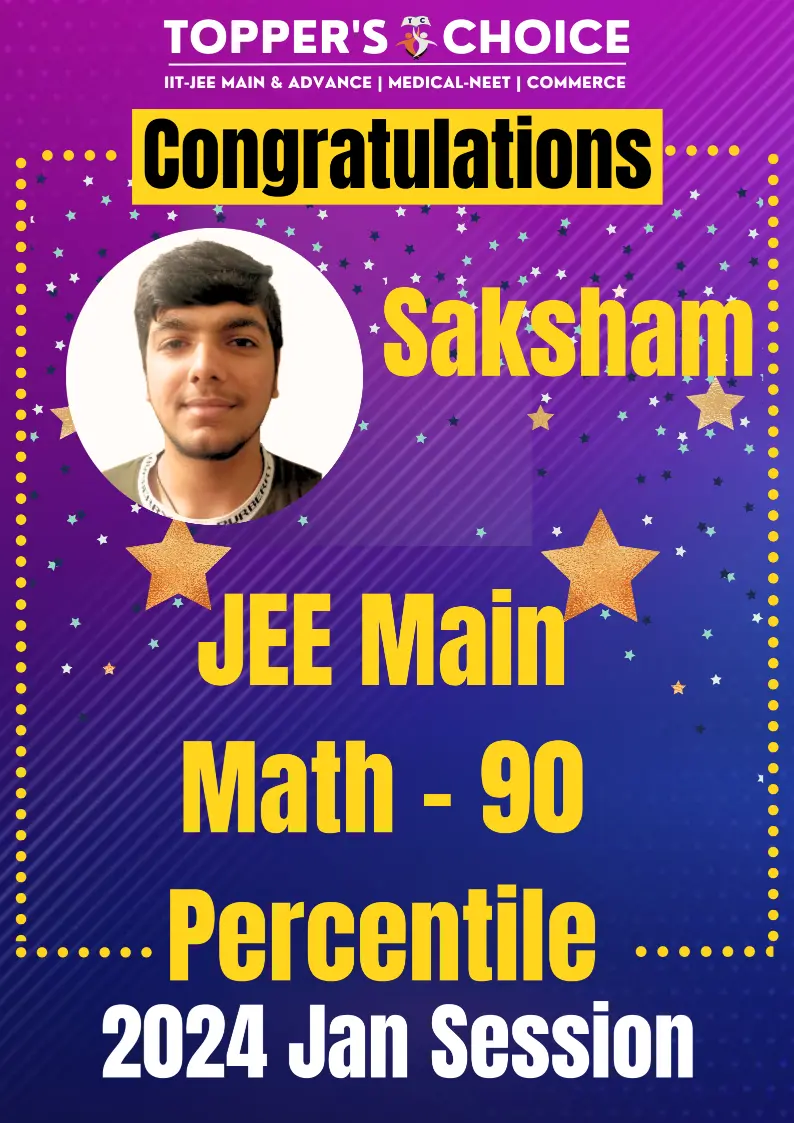Class 11th & 12th – Are you searching for the best coaching center for Class 11th & 12th near Sector 40? Look no further! Toppers Choice Coaching Center in Chandigarh is your one-stop destination for academic excellence in Science (Medical/Non-Medical) and Commerce streams. With structured batches, expert faculty, and results-driven strategies, we empower students to ace board exams and competitive tests like JEE, NEET, and CUET. Class 11th & 12th

📅 New Batches Start 1st April 2025 Class 11th & 12th
📞 Call Now: 9988590021 | 📍 Location: SCO 76, Second Floor, Sector 40C Market Chandigarh – 160036 India
Table of Contents
Why Choose Toppers Choice for Class 11th & 12th?
- Expert Faculty: Class 11th & 12th
Learn from teachers with 10+ years of experience in coaching Class 11th & 12th students. Our mentors simplify complex topics in Physics, Chemistry, Maths, Biology, Accounts, and Economics. - Dual Focus:
Master board exams while building a strong foundation for JEE, NEET, and CUET. Class 11th & 12th - Flexible Learning:
Attend live classes or revise later with recorded sessions. - Proven Results:
Year after year, our students achieve 90%+ in boards and secure top ranks in competitive exams. - Free Resources:
Get NCERT solutions, sample papers, and mock tests to stay exam-ready.
Class 11th & 12th Batches: Schedule, Subjects, and Streams
📢 Class 11th Batches (Medical & Non-Medical)
New Batch Starts 1st April!
Medical Students (Physics, Chemistry, Biology)
- Monday, Wednesday, Friday
- ⚡ Physics: 2:30 PM – 4:00 PM
- 🧪 Chemistry: 4:00 PM – 5:30 PM
- Tuesday, Thursday, Saturday
- 🧬 Biology: 6:00 PM – 7:30 PM
Non-Medical Students (Physics, Chemistry, Maths)
- Monday, Wednesday, Friday
- ⚡ Physics: 2:30 PM – 4:00 PM
- 🧪 Chemistry: 4:00 PM – 5:30 PM
- Tuesday, Thursday, Saturday
- ➗ Maths: 2:15 PM – 4:00 PM
📢 Class 12th Batches (Science & Commerce)
New Batch Starts 1st April!
Science Stream (Medical/Non-Medical) Class 11th & 12th
- Monday, Wednesday, Friday
- ➗ Maths (Non-Medical): 2:30 PM – 4:00 PM
- 🧬 Biology (Medical): 6:00 PM – 7:30 PM
- Tuesday, Thursday, Saturday
- ⚡ Physics: 2:30 PM – 4:00 PM
- 🧪 Chemistry: 4:00 PM – 5:30 PM
Commerce Stream (Accounts, Economics)
- Monday, Wednesday, Friday
- 📊 Accounts: 4:30 PM – 6:00 PM
- Tuesday, Thursday, Saturday
- 📈 Economics: 4:30 PM – 6:00 PM
What Makes Us the Best Coaching Center Near Sector 40?
1. Structured Timetable for Maximum Productivity Class 11th & 12th
Our schedules are designed to balance conceptual learning and revision time. For example:
- Class 11th Non-Medical students focus on Maths thrice weekly to build problem-solving speed.
- Class 12th Commerce batches emphasize Accounts and Economics to prepare for CBSE boards and CA/CS foundations.
2. Small Batch Sizes for Personalized Attention
With limited seats per batch, every student gets individual doubt-solving sessions.
3. Special Support for Droppers Class 11th & 12th
Struggling to crack JEE/NEET? Our dropper batches provide:
- Crash courses for Class 12th syllabus.
- Advanced problem-solving techniques.
4. Free Demo Classes & Scholarship Tests
Try before you enroll! Attend a free demo class on 1st April and avail scholarship discounts based on performance. Class 11th & 12th
How to Join Toppers Choice Coaching Center?
- Step 1: Call 9988590021 to book your free demo slot.
- Step 2: Visit our center near Sector 40, Chandigarh, for a counseling session.
- Step 3: Select your batch (Class 11th/12th, Medical/Non-Medical/Commerce).
- Step 4: Enroll by 30th March to grab early-bird discounts!
FAQs About Class 11th & 12th Coaching
❓ Can I join both board and JEE/NEET classes?
Yes! Our integrated program covers board syllabus and competitive exam prep simultaneously. Class 11th & 12th
❓ What if I miss a class?
Access recorded lectures anytime on our student portal.
❓ Do you provide study material?
Absolutely! Get printed Bookes, notes, NCERT summaries, and 10-year question banks for free.
Parent & Student Testimonials
“Toppers Choice transformed my son’s approach to Physics. He scored 95% in Class 12th boards!”
– Mrs. Sharma, Parent of Class 12th Non-Medical Student
“The Biology faculty is exceptional! I finally understand genetics without rote learning.”
– Riya, Class 11th Medical Student
Location & Contact Details
📍 Address: Toppers Choice Coaching Center, SCO 76, Second Floor, Sector 40C Market Chandigarh – 160036 India
📞 Phone: 9988590021
⏰ Timings: Monday-Saturday, 10 AM – 7 PM
Don’t Wait – Secure Your Seat Today!
Class 11th & 12th are critical years that shape your academic future. At Toppers Choice, we ensure you’re not just prepared – you’re ahead!
🎓 Enroll Now for the 1st April Batch and get:
- Free Demo Class
- 10% Discount on early enrollment!


























